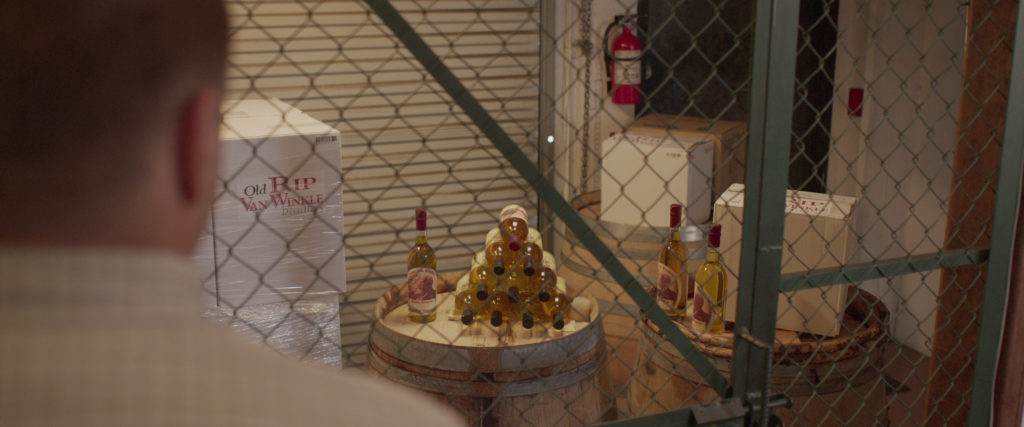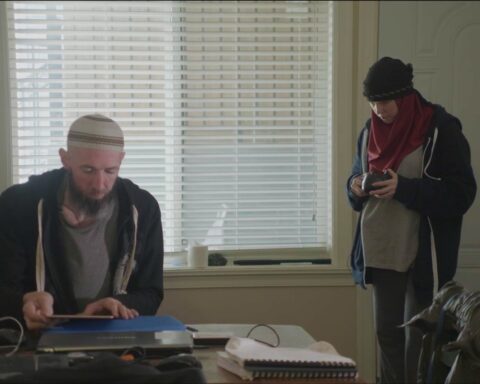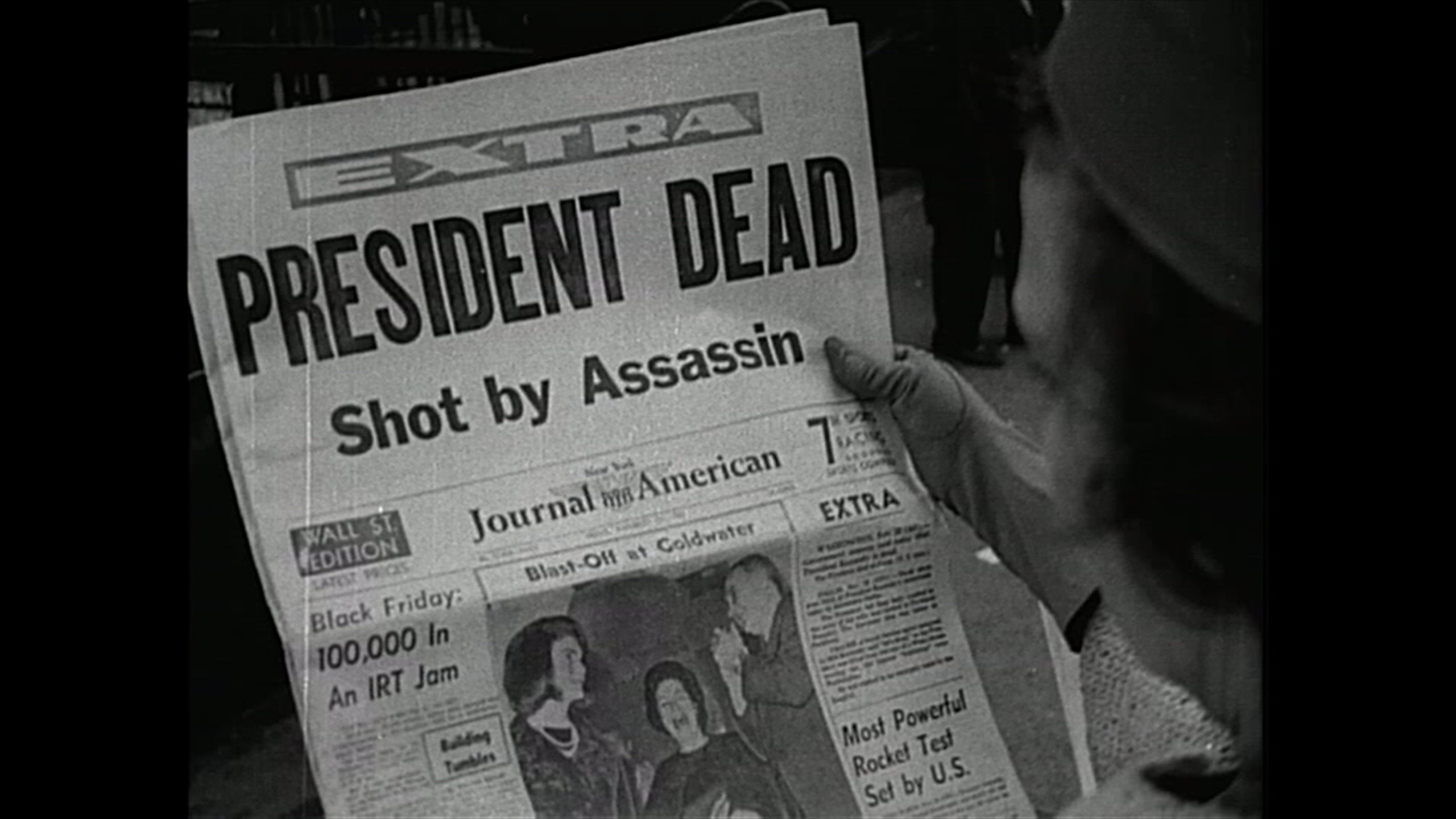Heist strikes it rich with a trio of zany true crime capers. This fun anthology of moral fables from Netflix offers three tales of cops and robbers in which the latter energetically articulate how crime doesn’t pay. The six part series covers three big scores and the high prices that the guilty parties paid while striking it rich.
Directed by Derek Doneen, Martin Desmond Roe (who won an Oscar this year for the short drama Two Distant Strangers), and Nick Frew, Heist navigates the brazenness and ballsy-ness required to execute these capers. The fun, however, comes in the telling as the parties who pulled off the scores recount how they beat the bank. Unlike many true crimes series that usually offer grisly details and whodunit headscratchers, Heist unpacks the toll of the big score.
The three stories get two episodes apiece with each director covering his own caper. The series structures itself for optimal binge-ability. It works as three standalone but complementary features, or one breezy mini-series if one wants to watch it in one shot or in smaller bites. Unlike some of the previous true crime series, Heist doesn’t feel padded or stretched. The structure plays the themes of the series to its advantage as each caper follows Netflix’s signature true crime pattern of engaging interviews augmented by handsome re-enactments and a collage of archival. Heist generally revisits the ins and outs of the capers in the first episode, while the second examines the aftermath. Put another way, Heist lets audiences experience the adrenaline high of the big score and then the misery that comes with a life on the run.
The first caper, “Sex Magick Money Murder,” covers an ill-fated Bonnie and Clyde affair. A woman introduces herself as Heather Tallchief and proceeds to explain how a chance encounter with a man named Roberto Solis drew her to a magical aura. Solis, who received early parole for a prison sentence because he captivated readers with poetry penned while in the slammer, literally hypnotizes Tallchief with his signature “sex magic,” which is just as kinky as it sounds. Tallchief tells a compelling yarn about how she tired of a life on the run and proposed that she and Solis get “real jobs” after getting by on cash from a small score. He advises her to get a job driving armoured cars, which naturally sets in motion a plan to go all Ocean’s 11 on the Las Vegas clients along Tallchief’s route.
Perhaps the most energetic entry of the three, “Sex Magick Money Murder” offers a great hook to the series. The caper is too good to be true and features a wonderfully nasty villain in Solis while Tallchief builds a satisfying character arc through her testimony. Her remorse resonates throughout her narrative, but she doesn’t make excuses despite being under her lover’s influence. She acknowledges that she made a choice, and the comical account of her inept driving skills and navigational skills leave little reason for audiences to pity the company that entrusted millions of dollars in her care. However, Heist strikes it rich with Tallchief’s account of the aftermath as her relationship changed with Solis, as did her perspective of living abroad under an assumed identity after she became a mother and the money ran out.
Episodes three and four, directed by Martin Desmond Roe, tell the story of “The Money Plane.” Perhaps the messiest tale of the three, “The Money Plane” has a heartbreaking premise as Karls Monzon remembers how he vowed to do anything to give his wife the child they wanted after two miscarriages inspired them to explore costly adoption opportunities. His lark is another too-good-to-be-true endeavour. Monzon recalls how he learned of a plane that flew $100 million cash into Miami weekly and briefly left the cargo unattended at the airport. In a guffaw that rivals Tallchief’s wayward driving, Monzon admits that he and his crew misjudged the size and weight of their payload—as well as the internal tensions that come with such a heist.
“The Money Plane” echoes “Sex Magick Money Murder” in its humorous yet gripping story. However, Monzon’s recollection doesn’t quite offer the same journey as Tallchief’s does, and admittedly suffers in comparison with the similarities in story beats. However, it echoes her realization that the costs of greed far outweigh the motivations that lead one to such a crime in the first place, as family and personal relationships pay the price. However, it offers the most novel finale of the three stories—arguably the only one that could muster the label of a happy ending.

Heist saves the best for last, however, with The Bourbon King, directed by Nick Frew. Episodes five and six recap the saga of “Pappygate,” a 2013 liquid gold heist in which 200 bottles of the top shelf Pappy Van Winkle Kentucky bourbon—valued up to $4000 each—disappeared from the Buffalo Trace distillery while a few barrels of lesser booze later vanished from a neighbouring distillery and thickened the plot. “The Bourbon King” finds a great raconteur in Gilbert “Toby” Curtsinger, the alleged Pappygate mastermind. Curtsinger doesn’t take credit for knocking off the Fort Knox of bourbon, but he instead offers an account that invites audiences to reconsider the ways in which some crimes become sexy headline-making affairs, while others are commonly accepted acts of daily life.
Curtsinger and other employees from the bourbon factory explain how theft was just a reality of the job. The talking heads tell how the liquor flowed freely at Buffalo Trace, and how refusing a nip was akin to insulting the product. They say that employees openly nicked a bottle here and there, while some colleagues were more brazen and clocked out with a full case of booze. It’s only when Curtsinger got around to selling some bottles of Pappy Van Winkle that he understood how much people were willing to pay for rare and premium aged bourbon. As Curtsinger becomes the chief suspect in Pappygate and his string of petty thefts becomes spun into a network of organized crime, he and his family pay the price for a crime for which he was never convicted.
“The Bourbon King” offers a strong finish to the mini-series with its whiskey-soaked lark of legend. It exemplifies how Heist satisfies by rounding up the usual suspects and inviting them to tell their own stories in their own words, conveying all the pain and glory entailed in their scores. Moreover, the approach doesn’t let the stories become the stuff of legend as the two-part structure demystifies the aura of coolness that inevitable echoes throughout the opening acts and the robbers’ remorsefulness becomes the endnote to their tales. The robbers smartly build themselves up only to knock themselves down and illustrate how sorting through the wreckage of a heist is a lot harder than pulling one off.
Heist is now streaming on Netflix.














